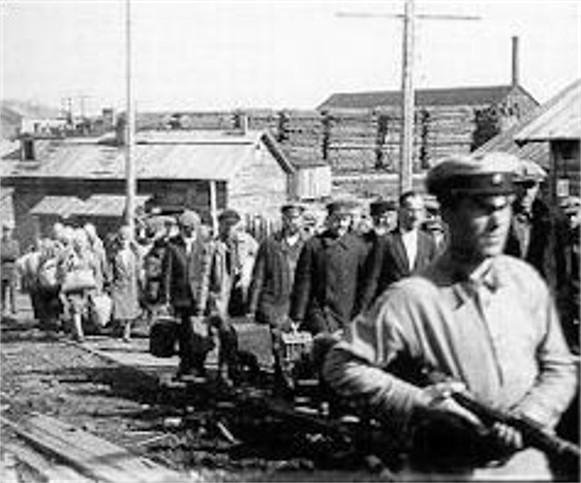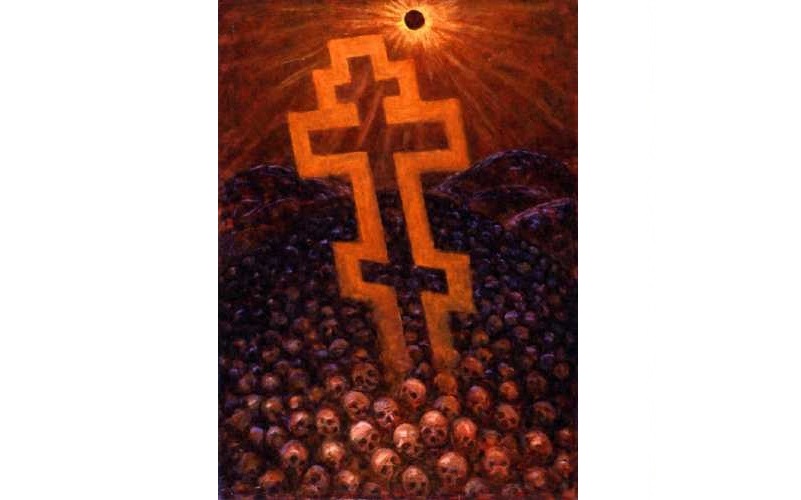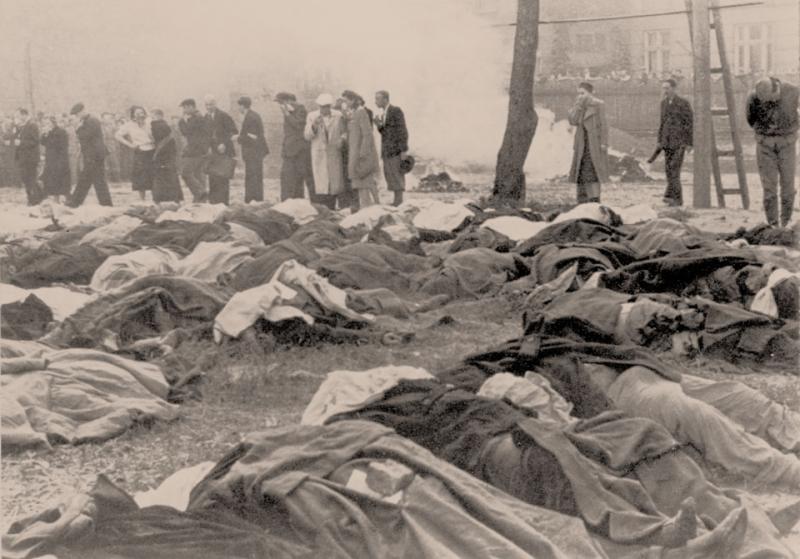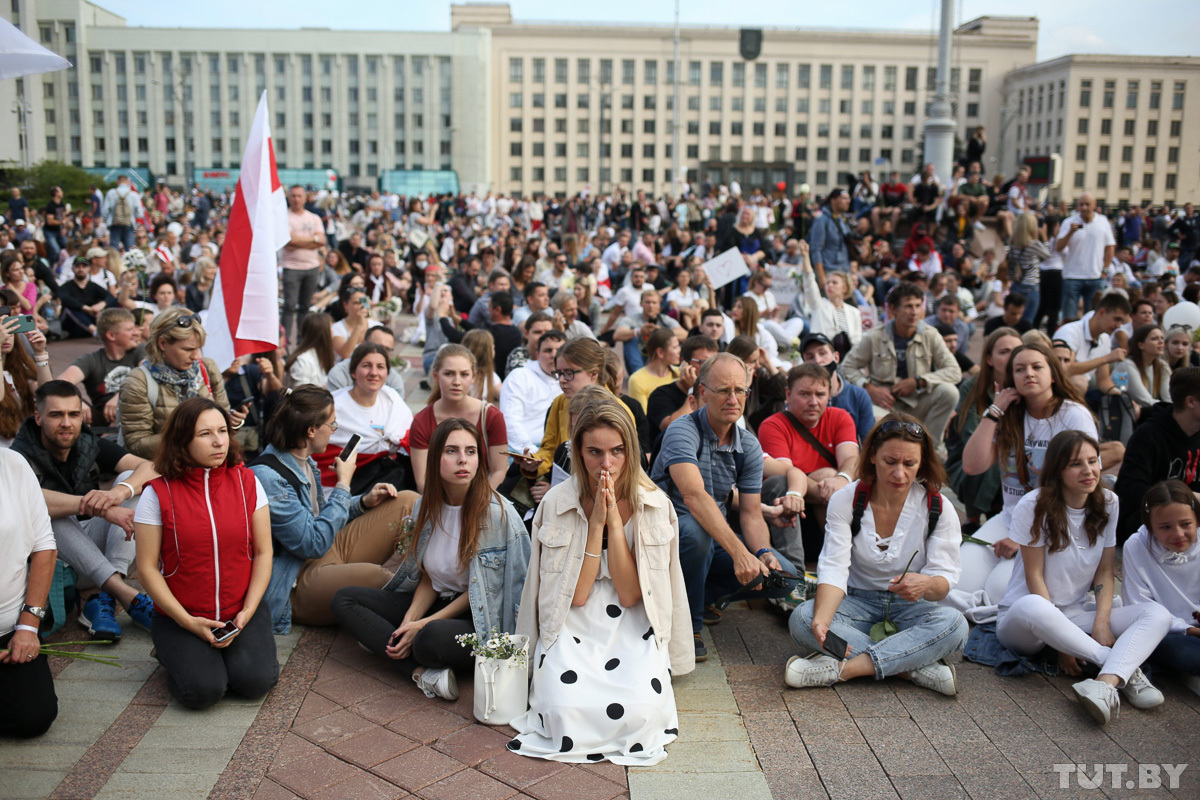Ukrainian historians and activists, who have been travelling every year to the Solovetsky Islands in the extreme north of Russia to honour those who died in Soviet prison camps, have published a book called Solovetska Pechal Ukrayiny (Solovetsky Sorrow and Ukraine). The past few years, no trips to Solovki were organized as Russian authorities have warned them not to visit the memorial and burial places. Russian human rights activists do not exactly confirm that it is dangerous for Ukrainian historians, but underline the fact that the perception of historical events has somewhat changed.
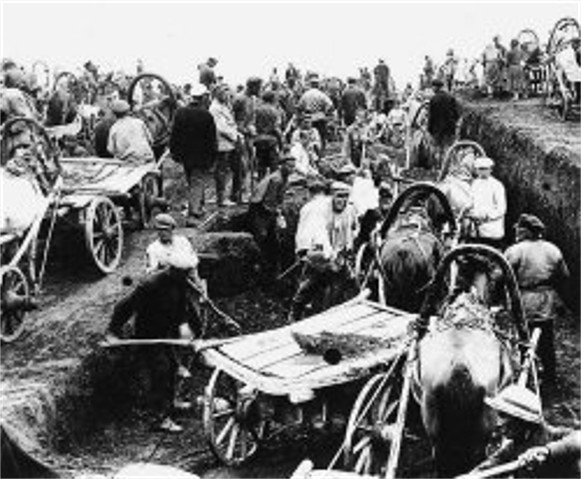
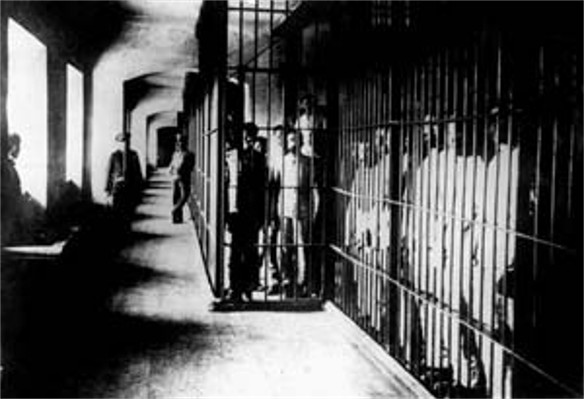
The book describes the history of commemorations dedicated to thousands of political prisoners executed in Sandarmokh (Karelia, northern Russia). Most of them were inmates of the nearby Solovki Gulag, such as Ukrainian theatre director Les Kurbas, writers Valerian Pidmohylny, Mykola Kulish, Mykola Zerov, and many others.
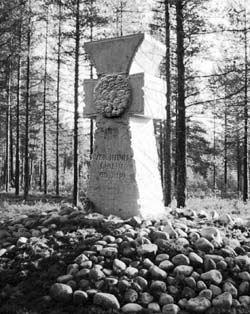
It was strange to read that this year in the Russian city of Surgut, which is situated very close to the planned memorial to victims of political repressions, Russian authorities have erected a bust of Joseph Stalin. Svitlana Chorna, compiler of the collection remarks:
“The seeds of Stalinism are very much alive. A bust of Stalin has been erected in Crimea; Zaporizhzhia had a Stalin monument before the Maidan. Why? Because people don’t know the truth about the tragedy of Solovki and Sandarmokh.”
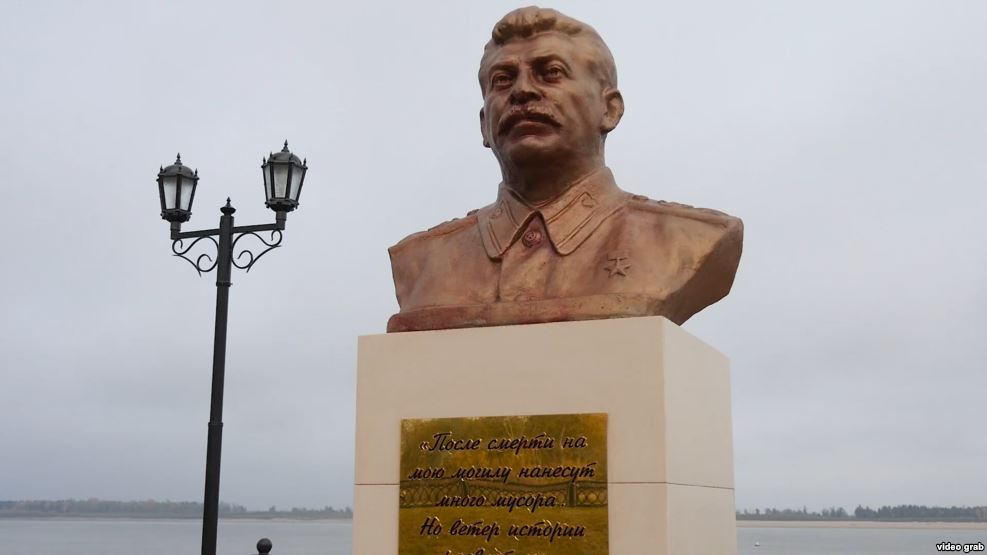
Today, Ukraine has launched the process of decommunization, and commemorations such as the pilgrimage to the Solovetsky Islands help people understand why all this is happening, agrees Deputy Chairman of the Ukrainian Institute of National Memory, Volodymyr Telishchak:
“Next year marks the 80th anniversary of the Great Terror. We hope that our government will program special events, that the president will issue a relevant decree, and that Ukraine will pay special attention to commemorating all the victims of political repressions.”
The collection includes articles written from 2011 to 2013 by both journalists and former political prisoners who have participated in the pilgrimage. However, researchers have stopped travelling to Solovki for security reasons, says one of the authors, president of the Solovetsky Brotherhood, Heorhiy Lukyanchuk.
“In 2011 we had a problem in Karelia when the bus was stopped and thoroughly searched - with dogs and everything. They accused us of transporting drugs. They searched long and hard, but found nothing. Well, we’d been warned beforehand, so all of us had sewn up the pockets of our clothes so that nothing could be planted!”
The visits and commemorations continued, but after the arrest and imprisonment of so many Ukrainians in Russia, which human rights activists of both countries call politically motivated, historians and researchers decided that it was too dangerous to continue.
Alexander Cherkasov, member of the Russian human rights association Memorial believes that it is not just about preserving the memory of the past, but also about fighting against the past, as marked by the presence of so many new Ukrainian political prisoners in Russia [28 according to the Let My People Go! group -- Ed.].
Ukrainian also took part in visits to the last Soviet camp Perm-36.
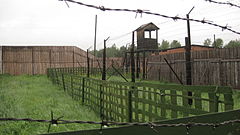
Alexander Cherkasov explains:
“The Perm-36 Museum was, in fact, taken over illegally by the state and transformed from a memorial to victims of repressions to a museum honouring heroic NKVD troops that guarded these so-called horrible criminals. There’s also no room for commemorating the victims of Soviet terror on Solovki, only the memory of the past monastery will be allowed. This has all occurred in the past two years when Perm-36 was accused of being a foreign agent. But, I don’t think it’s so dangerous for Ukrainian historians to visit these places in Russia, only more difficult and complicated.”
Related:
- Putin's Russia well on its way to 'criminal neo-totalitarianism' with a 'neo-terror' and a 'neo-GULAG,' Pastukhov says
- Moscow closed GULAG museum because it doesn't want a 'territory of freedom'
- 60 years ago this week, Ukrainians rose up against the Soviet GULAG at Kengir
- Chaplin, 'a Zhirinovsky from the Orthodox Church,' says mass repressions necessary and reasonable
- Russia was and remains a 'prison of nations,' Moscow writer says
- Victor Serge again triumphs over Arthur Koestler
- "Son of Crimea": documentary tells of struggle of Crimean Tatars to return to homeland (Watch Online)

